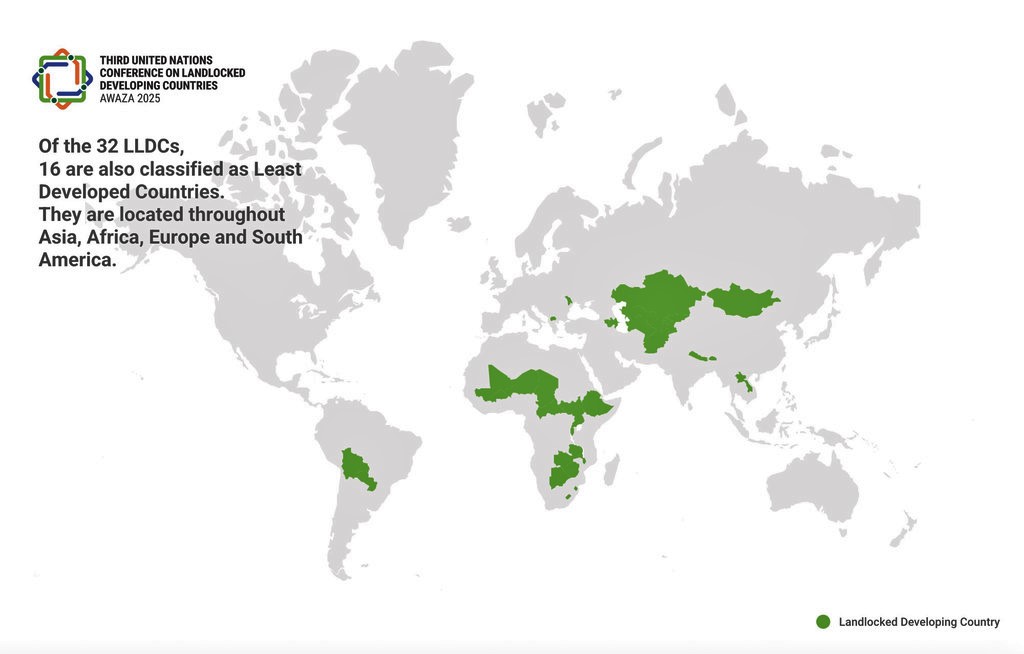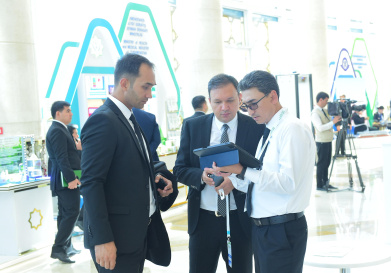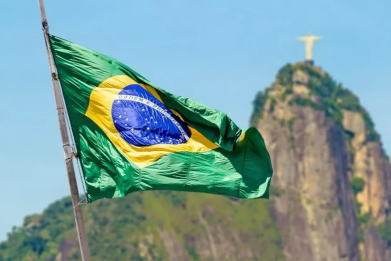World Leaders in Avaza: Towards Change for Landlocked Countries
01.08.2025 | 21:45 |Heads of state, ministers, investors and leaders of all levels from around the world will gather on Turkmenistan’s Caspian coast. The occasion is more than compelling: Avaza will host the Third UN Conference on Landlocked Developing Countries (LLDC3), which is held once a decade. Its main goal is to rebuild the global system to support 32 countries, economies of which are at a disadvantage due to their lack of access to the sea.
Geography has dictated their fate for too long. Their trade costs are 74% higher than the global average, and it can take twice as long to transport goods across borders as it does for coastal states. It’s no wonder that they account for only 1.2% of world trade. Amid global economic shifts, these countries risk being left behind.

UN High Representative Rabab Fatima stressed that LLDC3 is a key opportunity to reverse this trend. “At its core, this conference is about people: the millions of children who do not have access to the internet, the farmers who cannot get their produce to market, and the entrepreneurs whose dreams are held back by border delays and limited access to finance.”
The four-day event, which runs from 5 to 8 August, includes plenary sessions, five high-level roundtables and a Private Sector Forum to build partnerships and attract investment. The voices of all sectors of society, from parliamentarians to youth and women leaders, will be heard. UN Secretary-General António Guterres is expected to attend, underscoring the urgency and importance of the agenda.
The conference will be centred on the Avaza Action Programme 2024-2034. Adopted by the UN General Assembly in December, it includes five priority areas: structural transformation, infrastructure development, trade facilitation, regional integration and resilience. The Programme is supported by five flagship initiatives: The Global Infrastructure Investment Facility, the Regional Agricultural Research Centers, the UN High-Level Panel on Freedom of Transit, Digital connectivity initiatives and the WTO work program on trade.
For Turkmenistan, hosting LLDC3 is an important diplomatic milestone and a statement of intent. Ambassador and Permanent Representative to the UN Aksoltan Atayeva said: “We are proud to host the conference on the shores of the Caspian Sea. We look forward to welcoming everyone to Avaza for a transformative, action-oriented conference that will put landlocked countries at the center of global partnerships.”
Organizers promise not only state-of-the-art facilities, but also cultural exhibits that will allow delegates to experience Turkmenistan’s rich heritage, from local art to Caspian cuisine
For landlocked developing countries, the stakes are existential. They are among the most vulnerable to climate change and the least integrated into global value chains. Without decisive action, progress will be impossible and the 2030 Sustainable Development Goals will remain elusive.
Diego Pacheco, the Bolivian Ambassador who leads the Landlocked Countries Group, said: “The destiny of humanity is inextricably linked to that of these countries. Together, we can unlock their potential – for the benefit not only of our countries, but also for the shared future of humanity and Mother Earth.”
As the countdown to Avaza begins, expectations are high. The question is not whether geography matters, but whether global solidarity can transcend borders.
And LLDC3 intends to prove that it is possible.
ORIENT











